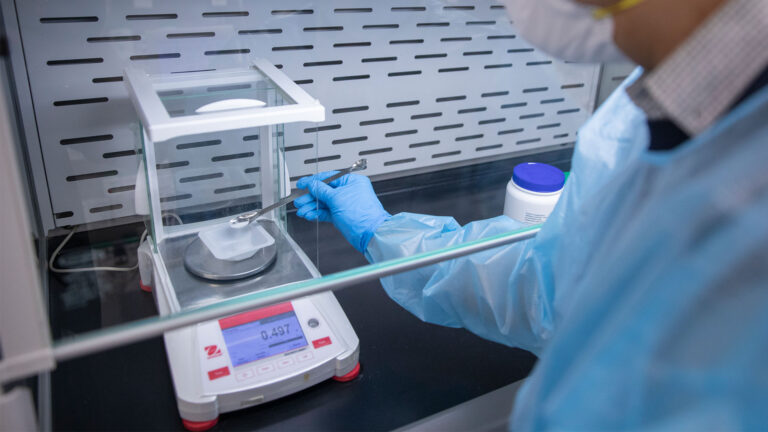
With the implementation of the new Standards for the Operation of Licensed Pharmacies (SOLP) and the SOLP’s updated requirements for compounding services, pharmacies that hold compounding and repackaging licences are busier than ever.
Previously, there was a requirement for pharmacies to perform at least level A compounding in house. As such, many pharmacy teams would prepare compounded products in house since they were equipped to do so.
With the implementation of the updated SOLP and the new requirement that all licensed pharmacies must provide patients access to compounding services, there is more flexibility for pharmacy teams that may choose not to offer compounding services in house. Instead, pharmacies may now meet their obligation by either performing compounding directly in the pharmacy in accordance with the compounding standards, or through an agreement with a pharmacy located in Alberta that holds a compounding and repackaging licence.
This change in requirements has led many pharmacy teams to make the decision to no longer offer compounding services on site and instead provide all compounded and repackaged products through an agreement with a pharmacy that holds a compounding and repackaging licence. This means that many pharmacies that hold a compounding and repackaging licence are busier than ever.
Pharmacies that hold a compounding and repackaging licence: Ensure you are meeting requirements
Pharmacies that hold a compounding and repackaging licence are reminded that you must still meet all legislative requirements for your pharmacy’s licensing categories and ensure you meet all SOLP requirements for the operation of a compounding and repackaging pharmacy. This includes, but is not limited to, ensuring you have
- proper policies and procedures in place;
- a quality assurance program for equipment, compounding areas, compounding personnel, and procedures;
- appropriate facilities and equipment for the compounds you are preparing;
- dedicated, clean spaces for compounding;
- trained, skilled, and knowledgeable compounding staff;
- additional requirements for hazardous preparations; and
- all other requirements identified in the standards.
With increasing demand, it is essential to continue to adhere to the requirements outlined by legislation and the standards.
Community pharmacies: Establishing a compounding and repackaging agreement
Community pharmacy teams that are looking to establish a partnership with a pharmacy that holds a compounding and repackaging licence are reminded that even if the drugs and/or compounds you provide your patients were prepared by another pharmacy, you are still responsible for the safety and integrity of those products.
Before entering into an agreement, there are some key points to help you ensure the safety and integrity of the products you provide to your patients, including establishing a proper agreement and checking the pharmacy’s policies, procedures, and compliance with the standards. If possible, you are encouraged to arrange a tour of the pharmacy’s facility so that you can see first-hand whether the pharmacy meets both the standards and your expectations. This will help you be confident in the pharmacy’s services before entering into an agreement.
If you’re looking for a pharmacy that holds a compounding and repackaging licence, you can use ACP’s Compounding and repackaging pharmacy directory.
When community pharmacies work with pharmacies that hold a compounding and repackaging licence to deliver quality compounded or repackaged drug products, it can streamline workflows and support the delivery of person-centred care.




